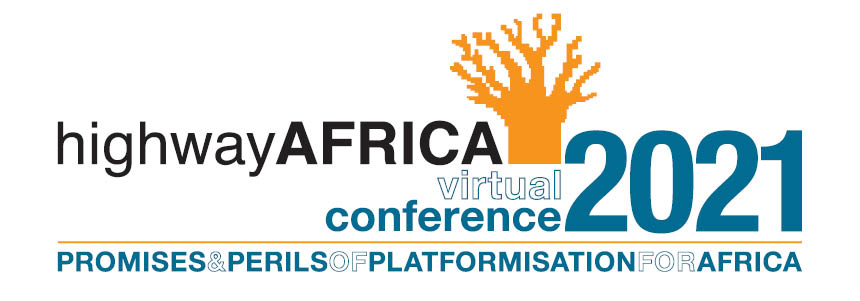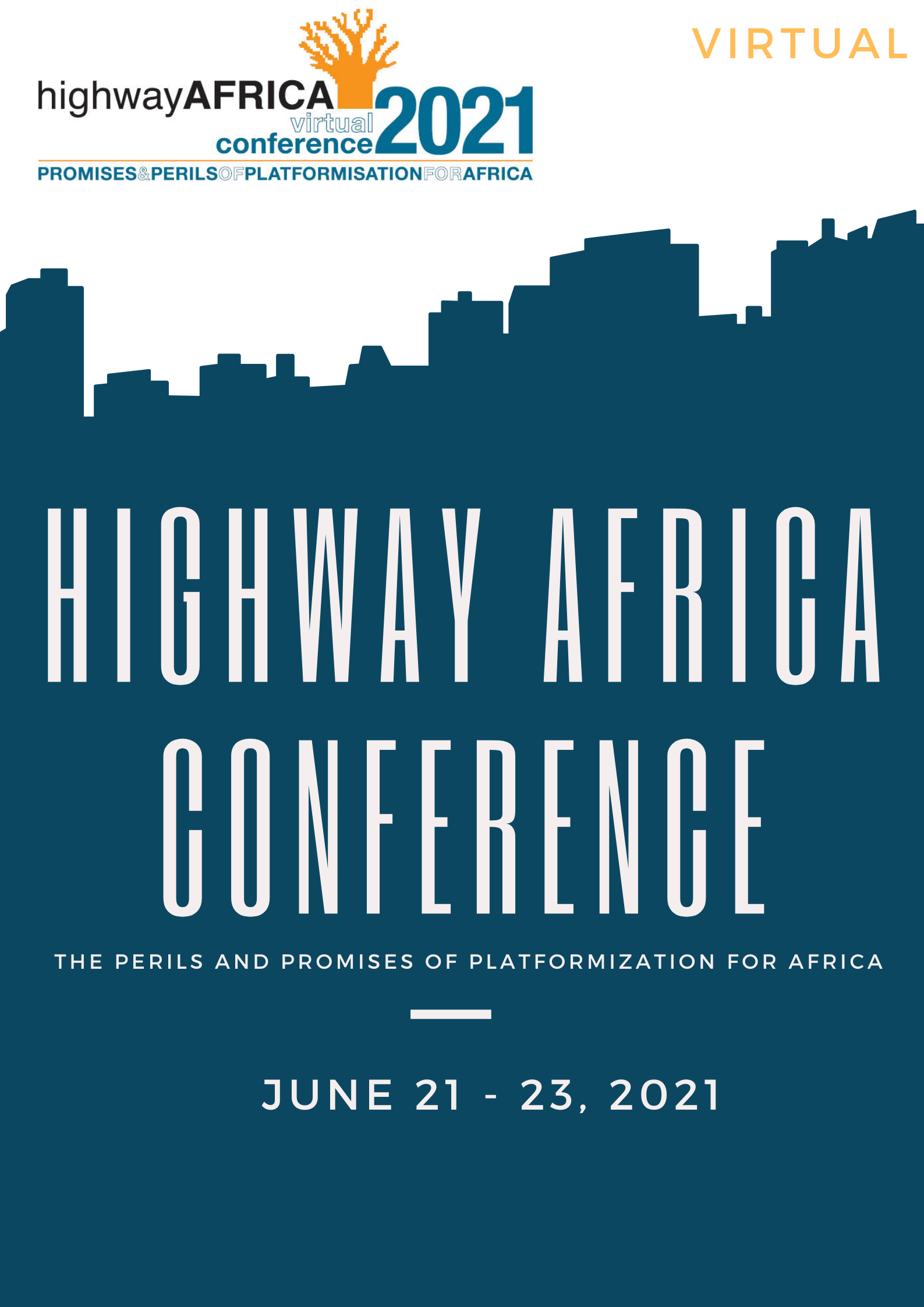
by Amm Admin | May 11, 2021 | Blog
2021 SOUTHERN AFRICA MEDIA GRANT FOR SOCIAL ACCOUNTABILITY REPORTING
Highway Africa (HA), together with the Partnership for Social Accountability (PSA) Alliance, invites media houses in Southern Africa to apply for the 2021 Southern Africa Media Grant for Social Accountability Reporting.
AIMS AND OBJECTIVES OF THE GRANT
HA and PSA aim to support high-quality investigative reporting on issues of social accountability, specifically on HIV / SRHR and food security by media organisations in Malawi, Mozambique, Tanzania, Zambia and Zimbabwe.
ABOUT THE GRANT
The grant supports two media organisations from the PSA Alliance’s project countries – Malawi, Tanzania, Mozambique, Zambia and Zimbabwe – on developing an investigative story, using data journalism, on issues of social accountability related to one of the following categories:
- HIV and Sexual Reproductive Health and Rights (SRHR)
- Food Security
Applications will be examined by a panel of media experts in the region. The representatives of the selected media houses will be invited to attend the virtual Highway Africa Conference to be held on 21-23 June 2021, where the grant will be presented.
GRANT AMOUNT
USD 1000.00 each for two media houses with the best story idea
CRITERIA
- Eligible story ideas should consist of investigative reporting on issues of social accountability[i] related to HIV and sexual reproductive health and rights (SRHR) and food security.
- The media organisations must be based in Malawi, Tanzania, Mozambique, Zambia or Zimbabwe.
- Story ideas can be in any language spoken in the five countries.
- Story ideas can be for print, online, radio, TV, multimedia and photo journalism.
DEADLINE FOR SUBMISSION
28 May 2021 (23:59 GMT +2)
HOW TO APPLY
Applicants are strongly encouraged to read through the following documents to fully understand the requirements for the call before applying. Late and incomplete applications will not be accepted.
- Social Accountability Reporting Explained
- Adjudication Criteria
Applicants should fill in the application form here >> https://forms.gle/RBEsJ1nu8vmKnfUd6
BACKGROUND OF THE PSA ALLIANCE
The Partnership for Social Accountability (PSA) Alliance, through the project ‘Strengthening Social Accountability and Oversight in Health and Agriculture in Southern Africa,’ seeks to improve public service delivery in agriculture (food security), health (HIV/AIDS, sexual and reproductive health and rights) and public resource management. This is done through strengthening the oversight and social accountability roles of five target groups in the SADC region, specifically: selected parliamentary committees, relevant government departments, issue-based civil society organisations (CSOs), smallholder farmer organisations, and the media.
With support from the Swiss Agency for Development and Cooperation (SDC), the project focuses on Malawi, Mozambique, Tanzania, Zambia and Zimbabwe. The PSA Alliance is a consortium of organisations led by ActionAid International (AAI) and including the Public Service Accountability Monitor (PSAM) of Rhodes University, Eastern and Southern Africa Small Scale Farmers’ Forum (ESAFF) and SAfAIDS.
[i] Social accountability is the broad range of actions and mechanisms beyond voting that citizens can use to hold the state to account. It is accountability that relies on civic engagement, namely a situation whereby ordinary citizens and/or civil society organizations participate directly or indirectly in exacting accountability. It is the right of citizens to demand explanations & justifications for the way public resources are spent, and demand corrective action where necessary.


by Amm Admin | Mar 29, 2021 | Blog
By Artur Olesch, Digital Health Journalist
Telemedicine, telecare, and mobile health apps have recently gained momentum, driven by the COVID-19 pandemic and novel healthcare challenges. When preparing content on emerging technologies, it is fundamental to understand their context, impact on the healthcare ecosystem, benefits, and threats.
Digital health or e-health?
The term “digital health” describes the digital solutions aiming to improve individuals’ health and well-being, decision-making, effectiveness, access to information, communication standards, management, and policy-making. Following the Healthcare Information and Management Systems Society (HIMSS) definition (updated in March 2020), “digital health connects and empowers people and populations to manage health and wellness, augmented by accessible and supportive provider teams working within flexible, integrated, interoperable and digitally-enabled care environments that strategically leverage digital tools, technologies and services to transform care delivery.”[1]
Digital health emerged from “health IT” (used mostly for electronic health records, IT systems in the hospitals) and “e-health” (defined as “the use of information and communications technology in support of health and health-related fields”). Hence, digital health doesn’t focus on technology anymore but on transforming healthcare using digital technologies.
The place of digital health in the current and future care landscape has been comprehensively explained in “Digital Health: A Framework for Healthcare Transformation”[2] published by HIMSS.
Why is digital health important now?
Healthcare is facing enormous challenges: aging societies, a rising burden of non-communicable diseases (NCDs), health inequalities, medical errors, growing patient expectations, a shortage of healthcare professionals, the inefficient use of resources, and global pandemics like COVID-19. As a result, healthcare spending and the gap between the demand and supply of healthcare services are rising continuously.
Digital health technologies are seen as enablers for more sustainable, efficient, personalized, patient-centered, and precise healthcare.
In recent years, World Health Organization (WHO) recognized the potential of digital health in supporting the achievement of the Sustainable Development Goals and Universal Health Coverage (UHC). To enable countries worldwide to plan, adopt, and benefit from technologies, the WHO has released recommendations on digital interventions for health system strengthening[3] and a global strategy on digital health 2020–2050.[4]
Identifying the benefits of new technologies
Digital health is hugely popular. Some argue it will help to address the abovementioned healthcare challenges. Although many scientific papers have been published recently on the topic, the positive impact of digital solutions for disease prevention, quality of care, and the treatment of some diseases is still understudied. Enthusiasm toward digital health technologies is also fueled by startups developing innovative solutions.
Especially when reporting on recent innovations, a double-check and verification of scientific facts is a must. The case study of a medical startup, Theranos, illustrates that relying on data available on the Internet might be insufficient (a revolutionary blood-testing technology turned to be a fraud[5]). Since digital health is a relatively new field, finding a reliable source requires in-depth research.
Papers exploring the benefits of digital applications in specific medical fields might be found in high-profile scientific journals (Nature, Science, The Lancet, JAMA, The BMJ). For journalistic objectivity, potential hazards – if they exist – should also be addressed. The most common ones are data privacy, unethical data processing, and cybersecurity threats.
Understanding the ecosystem
When writing about a particular technology, it is advisable to consider its impact on all healthcare system levels to capture its opportunities and limitations. A helpful tool is a healthcare stack analysis that includes: technology (what added-value does it offer?), the user (the target group, individuals or organizations), workflow (how does it fit the present procedures and organization structures?), and the healthcare system. The implementation of technology must consider the regulatory framework (national and international law and unwritten rules), healthcare standards, reimbursement system, existing infrastructure, culture, and trust toward new technologies. Every healthcare system is a complex and regulated ecosystem with many stakeholders representing different interests.
Distinguishing between well-being and medical technologies
At the beginning of 2021, there were over 400,000 health apps on the market. Health and well-being-related features are embedded in smartphones (e.g. activity and sleep tracking) and wearable technologies (e.g. smartwatches, fitness bands). Miniaturized sensors measure health parameters and monitor behavior to assist the users in navigating their own health. A few of them are already medical devices (recognized by the CE mark in Europe, FDA clearance in the USA, approval by CFDA in China), but most of them are well-being solutions. A rising number of digital technologies include Artificial Intelligence and Machine Learning algorithms. Their application remains still unregulated, but, for example, they should follow ethical guidelines that are vital for gaining trust.
Some solutions, like telecare systems, do not require medical certifications. However, they should be consistent with data protection regulations (e.g. General Data Protection Regulation (GDPR)[6] in Europe and The Health Insurance Portability and Accountability Act (HIPAA)[7] in the USA). On the contrary, telemedicine solutions must be compliant with relevant regulations if they include measurement of health parameters (blood pressure, pulse, body temperature).
Data sources and local perspective
There are many reliable international knowledge sources regarding digital health, with Lancet Digital Health and HIMSS media at the forefront. Due to different healthcare system models (private or public health insurance), journalists should also verify if the technology can be deployed in a particular national and regional ecosystem. One guiding principle should not be forgotten: it is the patient who must benefit most from the digital solutions. Therefore their opinions should also be included in the media coverage.
Storytelling in digital health
The biggest challenge today is not developing technology but its adoption in the healthcare market. It requires new digital skills of healthcare professionals and citizens, reinvented reimbursement models, and – most of all – cultural change or change management toward prevention-oriented and personalized healthcare. Finally, in digitalization, the essential part is a human factor: trust toward new technologies.
Key recommendations
- Avoid generalized benefits but focus on what the technology can deliver;
- Minimize use of the buzz words like “democratization of healthcare,” “digital revolution,” and “disruptive technologies”;
- Do not stereotype or bring up generalized threats, for example, concerns about data safety if there are no convincing arguments;
- Examine the impact of the technology on every layer of healthcare systems and different stakeholders (patient, healthcare professionals);
- Focus on the transformational power of the solution, not the solution itself;
- Check if the technology is compliant with the regulatory framework, data protection regulations, and local healthcare system goals and challenges;
- Check if the solution does not increase healthcare inequalities (price, availability for different patient groups);
- Follow the “patients included” principle. When collecting opinions, ask the patients or patients’ representatives about their perspectives;
- Highlight the problem in healthcare that the digital solution addresses;
- Be aware of vanity metrics that describe the uptake of technologies (number of downloads, users, etc.) which can be misleading;
- Raise awareness toward challenges like interoperability, access to technologies, digital literacy skills, and infrastructure.
[1] https://www.himss.org/news/himss-defines-digital-health-global-healthcare-industry
[2] https://www.himss.org/resources/digital-health-framework-healthcare-transformation-white-paper
[3] https://apps.who.int/iris/bitstream/handle/10665/311941/9789241550505-eng.pdf?ua=1
[4] https://cdn.who.int/media/docs/default-source/documents/gs4dhdaa2a9f352b0445bafbc79ca799dce4d_02adc66d-800b-4eb5-82d4-f0bc778a5a2c.pdf?sfvrsn=f112ede5_68
[5] https://www.businessinsider.de/international/theranos-founder-ceo-elizabeth-holmes-life-story-bio-2018-4/?r=US&IR=T
[6] https://gdpr.eu
[7] https://www.hhs.gov






